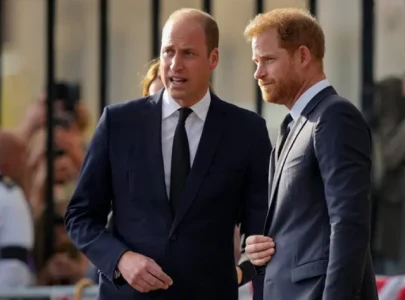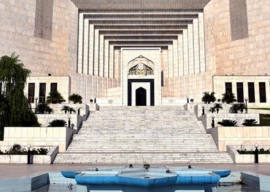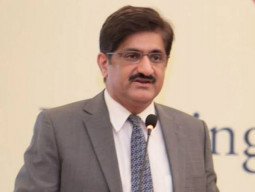
Whatever way you look at it, and whichever end of the political spectrum you may identify with, it would be disingenuous to not appreciate the Sindh government’s response to the tragic murder of Dr Shahnawaz Kunbhar.
When news of Dr Shahnawaz Kunbhar’s shooting hit the news on September 19th, social media was flooded with posts expressing – perhaps rightly – outrage at pictures of police officials being garlanded by extremist elements and showered with rose petals.
These were not easy visuals to process, that much is for sure.
The immediate reaction was to say that the police officials involved would not be held accountable and the matter would be swept under the rug. One cannot fault people for thinking this way. After all, this country’s history is rife with authorities avoiding any sort of decisive action when it comes to matters of alleged blasphemy and police excesses.
But that is not what happened in Dr Kunbhar’s case.
Almost immediately an inquiry took place, an investigation was ordered. Both the Sindh Chief Minister and the Home Minister were addressing public press conferences. The officers in question were not only named, they were suspended.
Almost every single day has seen an update on the case. From IG Sindh encouraging Kunbhar’s family to lodge an FIR, to the Chief Minister asking for updates on the investigation. Dr Kunbhar’s body was even exhumed to make the case against the police stronger, and to make sure that the charges and investigations are airtight.
Now let’s compare this with some similar incidents in recent times.
On September 12 a hotel owner from Quetta, was killed in circumstances similar to Kunbhar – by a serving policeman while he was in police custody. Days after his murder, his family pardoned the policeman who shot him and distanced themselves from the deceased’s ‘crime’.
What happened to that policeman? What happened to those who allowed him to access the accused and shoot him?
Let’s go back to 2017. Remember Mashal Khan’s lynching in KP? Those who followed the incident closely will remember that there were more than 20 police officers at the premises of the university that day. Were they ever questioned about what happened at the time of the attack on Khan? What happened to them? Where are they now?
The truth is, even the highest offices of power have had to relent in the face of charges of blasphemy. Earlier this year in February, thousands of people took to the streets after a Supreme Court judge took a decision unfavourable to many. He faced immense pressure in the following months to revise his ruling.
Pakistan’s history is rife with authorities backing down in such cases because, well, they must given how sensitive and potentially deadly the matter can be. I neither have the space nor the time unfortunately to recount or discuss the reasons behind those pressures.
There was also a lot of flak thrown at the Sindh government over the police highhandedness towards the Sindh Rawadari Committee march that took place on October 13 that also was protesting what happened to Dr Kunbhar.
The city was under Section 144, which was supposed to keep the province protest-free for four days only. By law, there should have been no gathering. Yet, eleven police officers were apprehended and suspended for their violence towards protesters that day. Chief Minister Murad Ali Shah has regretted what happened as well. What happened is unfortunate, there’s no denying that. But it happened – and corrective action was taken.
This is evidence that both the Sindh police and the Sindh government acknowledge that the days of police brutality must come to an end now. The videos and pictures of a man in a headlock and a woman being carried by her arms and legs cannot be ignored.
The other point here that many seem to be missing is that there was a counter protest that day by the Tehreek-e-Labaik Pakistan. Had the police not been present and controlled the movement of the other party to Karachi Press Club where protesters were being dispersed (albeit violently), imagine what would have ensued.
We’re talking about blasphemy here. We have enough evidence to see what such situations can lead to.
These were not easy steps to take.
Granted more needs to be done. For now, at least, let us appreciate the fact that all of these are unprecedented responses to menacing issues that have gone unaddressed for decades.



1730112008-0/jlo-(5)1730112008-0-165x106.webp)




1730104626-0/Copy-of-Untitled-(5)1730104626-0-270x192.webp)

1730107983-0/Copy-of-Untitled-(9)1730107983-0-270x192.webp)






COMMENTS
Comments are moderated and generally will be posted if they are on-topic and not abusive.
For more information, please see our Comments FAQ